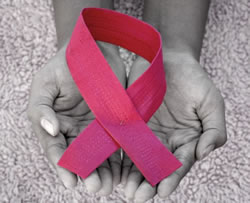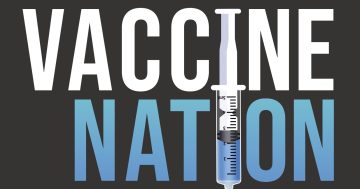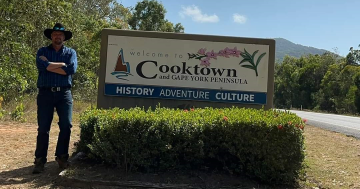Faced with a case of cancer Candice R Gleeson discovers it’s not a fight but an ambush.
 I had never felt more powerless than when I sat in my surgeon’s office for the first time, waiting for her to review the results of the frenzied testing I’d just completed.
I had never felt more powerless than when I sat in my surgeon’s office for the first time, waiting for her to review the results of the frenzied testing I’d just completed.
A week ago, I’d had a colonoscopy and the specialist performing it had issued a flurry of referrals afterwards.
The blood test form he filled in had said ‘staging for colorectal cancer’. He hadn’t even said the word cancer to me. You know it’s not good when they can’t bear to say the word to you.
“The good news is, you’re in with a fighting chance,” my surgeon said, as she whirled around from her computer screen.
Relief flooded through me.
She continued with, “But, it’s not going to be easy to beat. You need to be a warrior for at least the next year…don’t make any plans.”
I was scared and overwhelmed — how was I going to be a warrior? The idea of being brave and tough was antagonistic to what I was feeling.
I felt like my body had just betrayed me, so how could I even trust it to ‘fight’? I was too overwhelmed to entertain any ideas of being powerful or strong as my mortality became all-consuming.
As time went on, I felt increasingly resentful at the way that charities, the media and medical professionals use the idea of battle as a compelling metaphor.
I truly felt that there wasn’t anything I could do other than follow the treatment plan set by my medical team.
“The idea of a battle, war, journey…do I like it? No. I didn’t have a choice,” says Anthony Ellison, who was diagnosed at 39 with Stage 4 bowel cancer, which is the deadliest cancer for millennials.
“I just got dealt a hand that I can’t change. All I can do is make the best of a shitty situation.”
Anthony is coming up to his 40th round of chemotherapy, following a bowel resection and three liver resections.
“When people use these words it comes from a good place… I know that that person is trying to support me,” he adds.
Some evidence states that ‘fighting language may in fact be experienced as inspiring and supportive by people with cancer’, so it is fair to say that battle metaphors aren’t always experienced in a negative way.
But it can undermine how terrifying cancer is, as well as invalidate the lived experience of the person facing it.
Dr Kristen McCarter, Lecturer and Clinical Psychologist at the University of Newcastle, tells Refinery29 Australia that she has had clients express frustration with the battle metaphor.
“Usually (this use) is within a context where the person using the language has a lack of understanding or has not taken the time to ask the person’s preference in regards to this language.
My perspective is that this language can be unhelpful when it is used to simplify and diminish the complexity of the experience of cancer,” she says.
“When we frame cancer as something that can be fought on a level playing ground and beaten, we personify it into an enemy…That people who don’t win could have fought harder.”
“A metaphor used in isolation may minimise the numerous challenges of the cancer experience. It is about allowing people affected by cancer to choose how they speak about their experience. This is true for all types of experiences – for example, substance use, mental illness, trauma.”
The problem with using these inherently violent and power-based battle metaphors to discuss experiences with disease is that they frame us as ‘winners’ and ‘losers’.
After commencing my treatment, I felt weak and sad, and far from a winner, despite my team assuring me that my treatment should be curative.
But what about people who couldn’t be cured; whose bodies do not respond to treatment? Could they have done something better? Tried harder?
Like it’s a bully waiting for you after school. That people who don’t win could have fought harder.
It isn’t something you sign up for or opt into, like a 30-day squat challenge or a bad habit that you want to overcome.
The reality is that no one is a loser if their cancer can’t be cured, or if their chronic illness never goes into remission.
It’s largely a cruel game of luck, good timing and having a medical team who will advocate for you in the face of a complex system.
Ashleigh Dixon, 35, who is currently undergoing treatment for bowel cancer, says that when hearing phrases like someone ‘lost their battle’ or they ‘don’t have to fight anymore’, it almost sounds like the person had a choice.
“I see it either as like people have given up or were too weak to continue, or that they were released from a painful life that was just too much for them,” she says.
“If they’re not a winner, does it mean they’re a loser?”
Taylor Kirkwood, who was 27 when she received her cancer diagnosis, acknowledges the lack of choice around the outcome.
“It has nothing to do with how hard you fight. Otherwise, there would be people who don’t die because they put everything into it,” she says.
“When my cancer bestie Megy was coming towards the end of her journey, I used to think, ‘I’ve never met a woman who is trying so hard not to die’,” she says.
“I’m sure she didn’t appreciate being referred to as a fighter or a warrior because she was literally wasting away, and dying… right in front of her husband and daughter.”
Megy died in 2021, at the age of 33.
She sums it up as, “An ambush. A fight is supposed to be fair. If anything, it’s an ambush because it isn’t fair at all.”
The impact of using battle metaphors can also reverberate much deeper than the cancer experience.
“It’s just more focus on struggling against your body instead of focusing on the amazing things your body can do… negative body image and fighting, battling, struggling is already put on young women. You tend to hate your body enough, let alone trying to fight with something that is inside of you,” says Ashleigh.
Folks in the cancer community don’t want anyone to feel bad for what they have said with good intentions, or for their own lack of experience with cancer and not knowing what to say. The battle metaphor of cancer has become part of our vernacular and it takes effort to challenge that.
But, the pervasive nature of cancer and many chronic illnesses means that there has never been a better time than now for us all to be conscious of using the language that is appropriate for the person living the experience.
Have you ever said that someone lost their battle to a heart attack? Or a car accident?
Ashleigh agrees. “I think people are reverting to this language to be helpful and to connect…but I want them to ask me what’s the best language to use for me, because everyone is different… I really just want [them] to be conscious that the battle language can be a bit triggering for people,” she says.
Taylor adds, “It’s when people really lean into saying things like ‘you’re a fighter’ without acknowledging my feelings. That is when it becomes toxic positivity — when people just say things like ‘You’ve got this,’ and you really feel like you don’t.”
I would just want people to say, ‘I’m so sorry you’re going through this, it’s really awful and shit and I hate that this is happening to you.”
This article first appeared in Refinery29.











